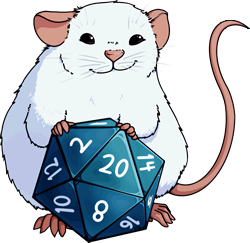This is the happy house — we’re happy here
In the happy house — oh it’s such fun
We’ve come to play in the happy house
And waste a day in the happy house
–from Happy House by Siouxsie and the Banshees
D&D is a happy house. House rules are normal for D&D. Happy house rules! Like most DMs, I’ve got some house rules for out Nentir Vale campaign. They are actually relatively brief. In days gone by, I would often have lots of house rules. In days way gone by, I had a bit of a reputation with my players for rules tinkering all the time…even developing our own system for playing (a mashup of older editions of RuneQuest and Ars Magica). Nowadays, I’m not nearly the tinkerer that I used to be. Nentir Vale house rules below the break.
Here are our Nentir Vale house rules in no particular order.
- We use the standard array for ability scores.
- Just to be fair to everyone.
- Races and classes are limited to particular races and classes.
- This is to reinforce a particular feel to the campaign.
- Each character receives a “free” Feat at 1st level. The Variant Human can no longer be selected as a race.
- I am entirely too nice to my players…especially RJ who had selected the variant human prior to my introducing this house rule and so Woodward got to have TWO feats at 1st level. And yet RJ still thinks his character isn’t special enough.
- PCs receive maximum Hit Points at every level.
- Yep, entirely too nice to the players.
- If a barbarian remains “ragey” (e.g., charging a creature that is too far away to attack), they do not lose their rage even if they do not attack or suffer damage in a round.
- Beast Master rangers use a bonus action to direct their animal companion rather than an action.
- Milestone experience.
- Every character gets the Fate Point feat for free at 1st level. This feat grants two “Fate Points” at the start of each session. A Fate Point can be used when making an attack roll, saving throw, or ability check to gain advantage on the roll. This replaces Inspiration.
- I suck at handing out Inspiration so this “fixes” that. It also puts everyone on a level playing field for inspiration as every player may not be as comfortable at doing things that typically grant inspiration.
- We use D&D Beyond for character sheets. It is a feat simply because that was the easiest way for me to get on said character sheets.
- Critical hits do maximum damage PLUS a roll of the damage dice that would normally be rolled.
- Nothing says suck like rolling minimum damage on a crit. Everyone, not just the PCs, roll crits in this fashion.
- Feats will be allowed but no multi-classing.
- Also to reinforce a particular feel to the campaign.
- Ammo is not tracked if it can be replenished periodically…say at least once a week.
- No encumbrance UNLESS this starts to be abused by the PCs.
- Drinking a potion is a bonus action if the potion is readily available. It is still an action to administer a potion to another.
- In the first round of combat, a combatant can choose to go later in the round than their rolled initiative. The new position in the order must be after an ally in the combat. This remains the character’s initiative for the remainder of the combat. This choice is made on the character’s originally rolled initiative.
- After the first round of combat, a combatant may select to take no actions and to not move on their turn to select a new position in the initiative order. Starting in the next round, they take their turn normally on this new initiative count.
- Both of these initiative house rules were implemented after too many high initiatve rolls by a character waaaaay in the back of the party and they can’t really do much anything. These, especially the first rule, have helped a good bit with this.
- It is also pretty quick and easy to alter the initiative order in Foundry VTT.
- Concentration checks after taking damage are only required if the damage from the attack is 20 or more.
- When we were playing some fill-in games at a high level, concentration checks: a) were just getting out of hand in terms of the number of them; and, b) losing that high level concentration spell right after casting it because of a crappy roll sucked.
- Potions of healing do the average amount of healing UNLESS the player elects to gamble and roll the dice. This decision must be made pretty much immediately.
- Potion of Healing heals 7 hit points
- Greater Healing heals 14 hit points
- Superior Healing heals 28 hit points
- Supreme Healing heals 45 hit points
- This is mostly to speed things up and give the PCs a little predictability. Plus it sucks to roll all 1s on those healing potions. Did I mention that I’m way too nice to my players?
That’s it. Did you notice a pattern? It’s like almost all of these house rules are designed to make things more streamlined for the players or address things that have sucked for the players in our game.
I forget…did I mention that I’m way too nice to my players? Of course, since I’m so nice here, I can be downright cruel in game, right? 😛
